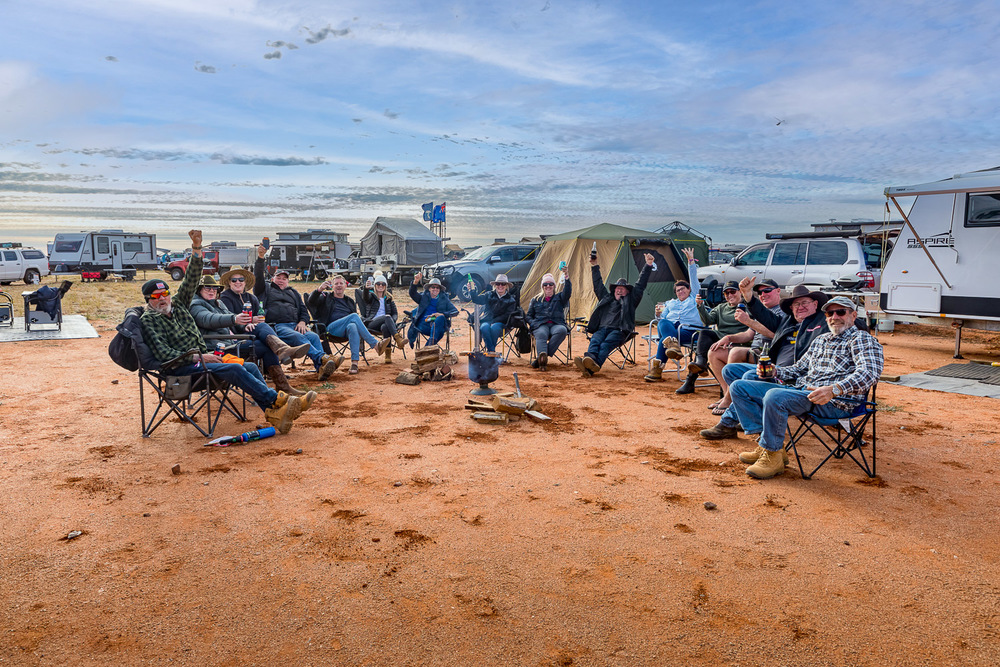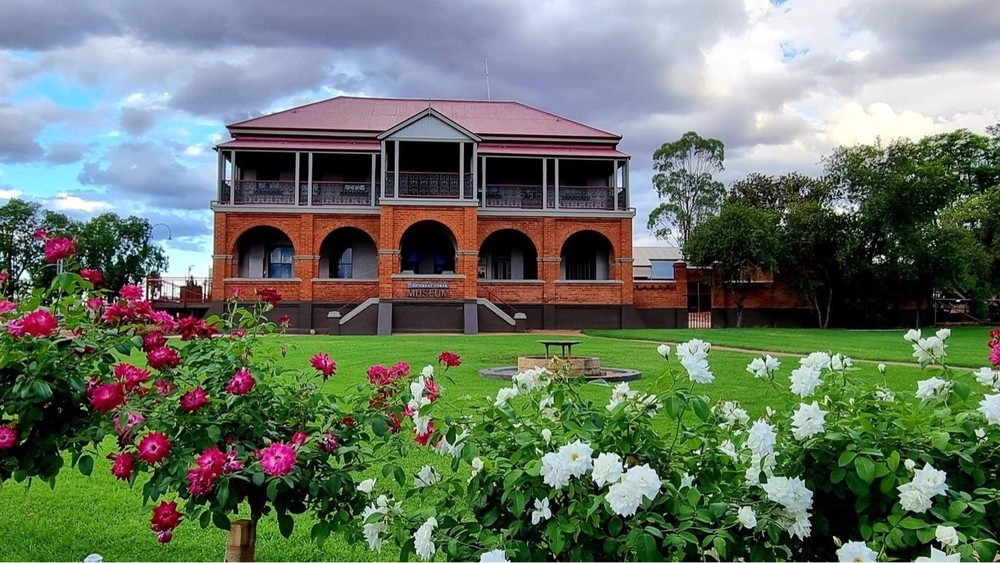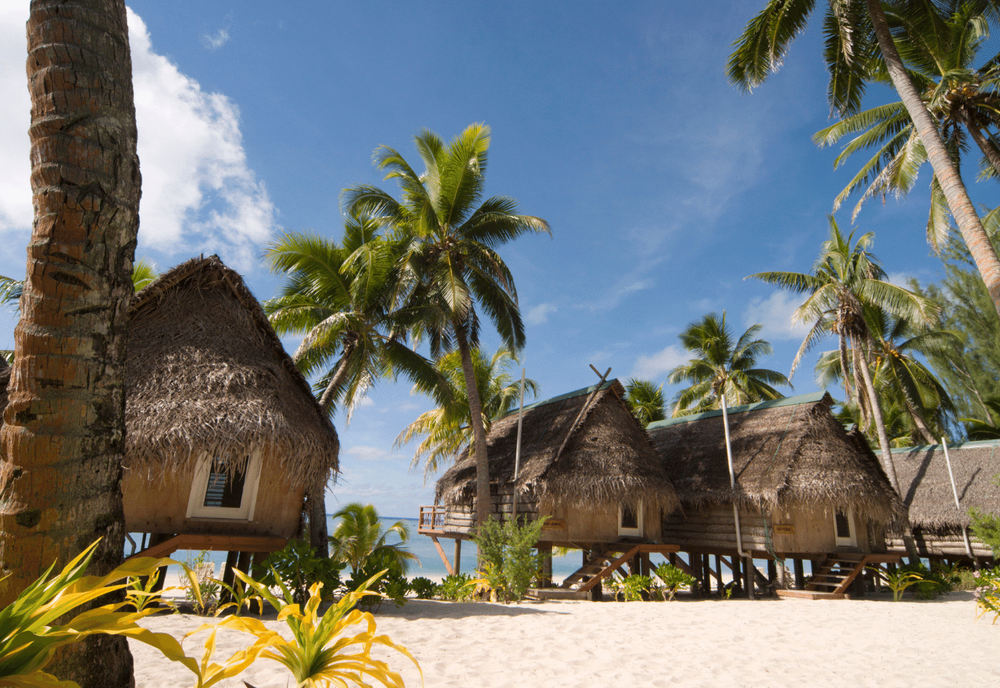Aussie travel top of our list
Angie White
21 August 2022, 7:00 AM
 Time to travel - Aussies are on the bolt.
Time to travel - Aussies are on the bolt.It’s no secret Aussie’s are feeling the pinch with the cost-of-living soaring, however recent research has revealed travel remains top of mind with 7 out of 10 Aussies (72%) eager to prioritise domestic travel and holidaying at home over international trips in the next 12 months.
If the lines of cars, caravans and motorhomes on country roads are any indication, Aussies have taken to holidaying at home in droves.
According to Booking.com research from their inaugural APAC Travel Confidence Index, the figures provide a snapshot of how confident consumers feel about exploring the world again and their motivation to travel.
The commissioned research polled 11,000 travelers from 11 countries and territories including over 1000 from Australia between April and May 2022, combined with the company’s proprietary data and insights as a digital travel leader for the past 25 year, offers insights into the region’s travel confidence.
The TCI report reveals the three biggest considerations for Australians looking to book travel in the next year: cost (72%), safety (54%) and convenience (36%).
In comparison, the top two considerations which ranked consistently high across all markets were ease of planning and booking travel, especially as Covid restrictions have eased around the region.

Campers at the Mundi Mundi Bash near Broken Hill on 17 August. PHOTO Matt Williams.
Although (37%) say accommodation preferences have been changed by the pandemic, a quarter now prefer staying in homes and apartments, while sales of caravans and campers have shot through the roof with waiting times up to 14 months for delivery.
Add to this the desire to “just get away” (51%) appears to be the top motivator to travel for Australian consumers, followed by those wishing to reunite with their families (42%) and those who are rebooking a pre-Covid trip (23%).
While local businesses in Nyngan, Warren and Narromine are reporting an increase in visitors to both town and their places of business, Cobar has recorded record amounts of visitors, either passing through or stopping to tour the town.

Cobar Museum has seen a record number of visitors.
“Cobar Tourism has gone through the roof, we are fully booked in terms of accommodation, and visitors attending the newly re-opened Museum and other local landmarks have been markedly increased,” said Demi Smith, Cobar Shire Council Tourism Manager.
“There is a new demographic of travellers, grey nomads, families, and couples have hit the road to see Australia and Cobar has been one of the beneficiaries. It’s fantastic for our town and brings a sense of excitement,” said Ms. Smith.
While cost was a main consideration in booking travel, it also came out as the top concern for Australian travelers, with almost half (47%) highlighting that in the current climate cost is a major deterrent, followed by the fear of falling sick (39%).
With the ongoing nature of the constantly evolving pandemic and cost of living, the access to flexible cancellation policies and clear refund information (67%) poll participants stated this was a key part of, and motivation or deterrent, to book travel.
It was interesting to note that while cost was strongly influencing Aussie travel decision, nearly (40%) believed they are likely to travel internationally in the next six months, with most (46%) likely to continue to look for holidays within the Asia- Pacific region for their first trip.
The Travel Confidence Index explores the overall comfort levels, motivators, and concerns of consumers across Asia-Pacific and how this varies across the region. With research in 11 countries, India emerged as the most confident to travel with a clear majority with (86%) stating they intend to travel in the next twelve months, followed by Vietnam and China.
Australia comes in at fifth place at (72%) - a healthy and positive confidence level - however cost factors continue to impact purchase behaviours despite international borders further relaxing.
In a lower response compared to other regions, only 15% of Australians were interested in travelling to a wellness retreat.

Take us to Asia or the Pacific.
The type of accommodations Australians are wanting to stay in has also changed due to the pandemic, with a third (37%) agreeing that their preferences have shifted. Whilst hotels remain most preferred accommodation to stay in, (24%) of respondents are now favouring homes and apartments. This is even higher if you include ‘B&Bs and ‘Other’ alternative accommodations in the mix.
“Whilst travel has been reinvigorated with borders now open, cost of living pressures across Australia are still a significant factor in the decision to travel again, said Melissa Ellison, Area Manager Australia at Booking.com. "Tourism operators and governments at all levels need to continue to work together to provide sustainable and affordable options for re-energising the sector.”
“Our APAC Travel Confidence Index reflects how while travel intent remains strong, travel confidence remains nuanced and varied across Asia compared to Australia. The increased preference for homes and apartments as well as a majority still only seeking to travel domestically, should be considered a positive in supporting the local travel industry over the next 12 months.”
“It is a promising indication of the opportunities available for the industry to adapt and collaborate now to bolster the overall confidence of travellers, so we can truly make it easier for everyone to travel and experience the world again.”




